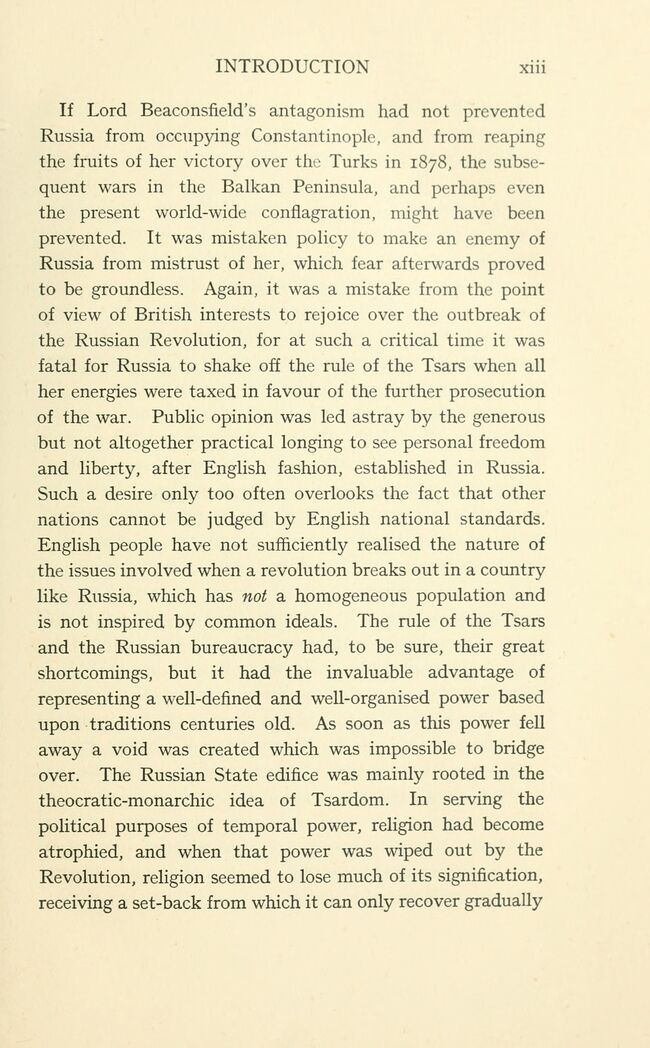
Full resolution (JPEG) - On this page / på denna sida - Introduction

<< prev. page << föreg. sida << >> nästa sida >> next page >>
Below is the raw OCR text
from the above scanned image.
Do you see an error? Proofread the page now!
Här nedan syns maskintolkade texten från faksimilbilden ovan.
Ser du något fel? Korrekturläs sidan nu!
This page has never been proofread. / Denna sida har aldrig korrekturlästs.
INTRODUCTION
xiii
If Lord Beaconsfield’s antagonism had not prevented
Russia from occupying Constantinople, and from reaping
the fruits of her victory over the Turks in 1878, the
subsequent wars in the Balkan Peninsula, and perhaps even
the present world-wide conflagration, might have been
prevented. It was mistaken policy to make an enemy of
Russia from mistrust of her, which fear afterwards proved
to be groundless. Again, it was a mistake from the point
of view of British interests to rejoice over the outbreak of
the Russian Revolution, for at such a critical time it was
fatal for Russia to shake off the rule of the Tsars when all
her energies were taxed in favour of the further prosecution
of the war. Public opinion was led astray by the generous
but not altogether practical longing to see personal freedom
and liberty, after English fashion, established in Russia.
Such a desire only too often overlooks the fact that other
nations cannot be judged by English national standards.
English people have not sufficiently realised the nature of
the issues involved when a revolution breaks out in a country
like Russia, which has not a homogeneous population and
is not inspired by common ideals. The rule of the Tsars
and the Russian bureaucracy had, to be sure, their great
shortcomings, but it had the invaluable advantage of
representing a well-defined and well-organised power based
upon traditions centuries old. As soon as this power fell
away a void was created which was impossible to bridge
over. The Russian State edifice was mainly rooted in the
theocratic-monarchic idea of Tsardom. In serving the
political purposes of temporal power, religion had become
atrophied, and when that power was wiped out by the
Revolution, religion seemed to lose much of its signification,
receiving a set-back from which it can only recover gradually
<< prev. page << föreg. sida << >> nästa sida >> next page >>